2022-6-6
Tina Xie /photo by Young Team Productions /tr. by Phil Newell
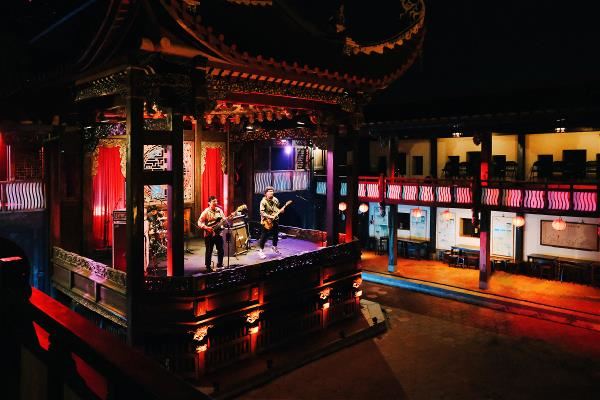
In 2021 a presentation titled “Taiwan Beats Showcase” brought Taiwanese bands and singers to the Austin, Texas-based South by Southwest (SXSW) Music Festival, which moved online in 2020 and 2021 due to the pandemic. To record their sets for the show, musicians and singers got out of the studio and sought out performance spaces with local color—including high mountains, a temple, a shrimp fishing pond, and a traditional factory—to offer the global audience fresh new musical experiences. The showcase was one of programs most highly recommended by the SXSW organizers.
Young Team Productions, the team that handled Taiwan’s participation in the 2021 SXSW online festival, continued their high-quality productions in 2022. They took on the challenge of recording live performances at venues including the Lin Family Mansion in Taichung, a temple parade float, and Kaohsiung Port. They hope that through these musical performances a global audience has been able to see Taiwan’s history and culture.
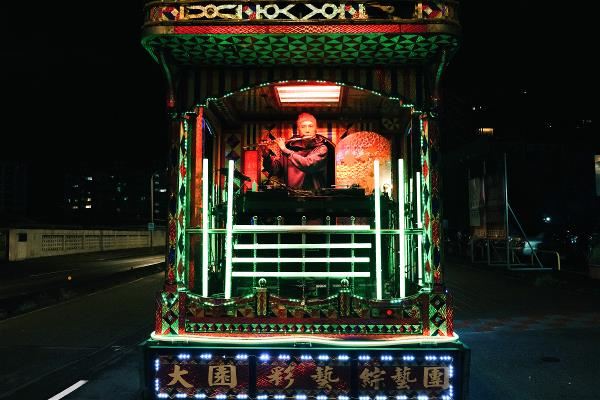
Stage with a Taiwanese flavor
The theme of the Taiwan Beats Showcase at this year’s SXSW was “transcending space and time.” First up in the video is the Taiwanese-language power trio Sorry Youth, and the venue is the 19th-century Lin Family Mansion and Garden, a national historic site in Taichung’s Wufeng District. The band stand on the Great Flower Hall stage, built for hosting banquets and theatrical performances, and sing the song “Pilgrimage,” which describes a Mazu pilgrimage, a major event in Taiwanese folk religion. The spirit of protecting Taiwan expressed in the lyrics echoes the history of the Wufeng Lin clan, who quelled civil unrest in the mid-19th century and fought in the Sino–French War of 1884–85.
Next, the camera lens turns to a glittering parade float cruising down a Taipei street in the dead of night. The mood is magical and fantasy-like, matching the musical style of the performer on board, DJ QuestionMark. James Minor, head of the SXSW Music Festival, had high praise for this performance format.
The performance venues for Taiwan Beats Showcase were carefully selected. Besides weighing how well the spaces were suited to the performers, the team also wished to display Taiwan’s diversity to the worldwide audience. For example, Chuang Mei Theater, the venue for the performance by Taiwanese-language songstress Olivia Tsao, is located in Tsao’s birthplace, Tainan. Moreover, Giang Giang has occasionally taken part in the Dajia Mazu Pilgrimage since reaching adulthood. While doing so, he noticed that the music broadcast during the procession had electronic elements, heavy rhythms, and clear melodies, and this inspired the band to work creatively in the same direction.
In this year’s showcase, the Taipei electronic music venue Pawnshop appears on screen for the first time ever. This club, which hosts all kinds of themed parties and electronic music shows, has always prohibited guests from filming its interior space, giving it a mysterious ambience. It proved to be a very fitting setting for the performance by psychedelic experimental music duo Mong Tong, who use elements from Taiwanese religion in composing their mystical songs. Meanwhile the electronic/alternative rock band Sleeping Brain played at Venue, a multipurpose experimental site for exhibitions and cultural activities located in Tiaotong, an area of Taipei’s Zhongshan District with a rich Japanese atmosphere.
The last group in the video is Elephant Gym, an alternative “math rock” trio with the bass playing a leading role. They played at Kaohsiung Port, close to the recently built Kaohsiung Music Center. Kaohsiung is also home to the long-running Megaport Music Festival. For the band members, the city is the place where they grew up, so it meant a lot to them to perform there.
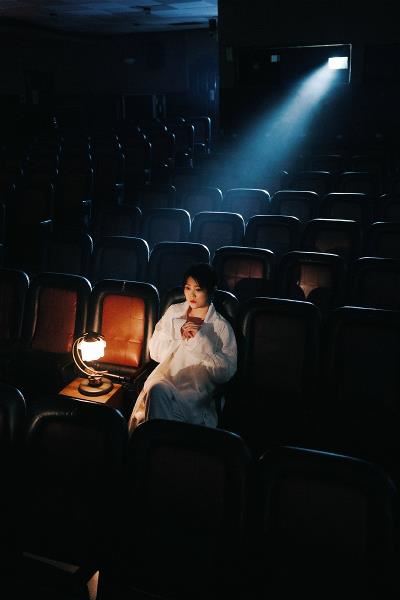
Professionalism and creativity
For the 2021 online SXSW, Taiwan and Norway were the only two countries which filmed their music videos outside of recording studios. The Norwegian bands shot their videos in the northern city of Tromsø, while the Taiwanese contingent used four locations representative of Taiwan. The widely praised “shrimp fishing pool” location generated much curiosity among international viewers. Cha Cha, the person in charge over at Young Team Productions, says with a laugh: “Some music fans even expressed the hope that when SXSW is held in person again, a shrimp fishing pool can be set up there so people can experience it for themselves.”
The recording process for 2022 brought Young Team Productions together with highly experienced partners including Fire on Music, Good Show Lab, and Smooth Paradise Studio, all of which have shot music videos for well-known Taiwanese singers and bands. When they filmed at the Lin Family Mansion, they specially waited until shortly before sunset to begin shooting in order to create a magical atmosphere with a sense of transcending space and time. Also, the sound mixing in 2021 was so well received that this year the producers put out a Taiwan Beats Showcase album for a limited time on the online music platform SoundCloud.
The inspired performances in the Taiwan Beats Showcase have not only attracted the attention of foreign music festivals and led to invitations for bands to perform overseas, but have also aroused a great deal of curiosity among music fans about the roles of the various behind-the-scenes teams. Therefore last year there was a special livestream program to let people put questions to the teams online. Cha Cha says that now that the 2022 Taiwan Beats Showcase video has been released on YouTube, they will next release videos of outtakes and behind-the-scenes stories so that the audience can get a glimpse of the “live session” recording process.
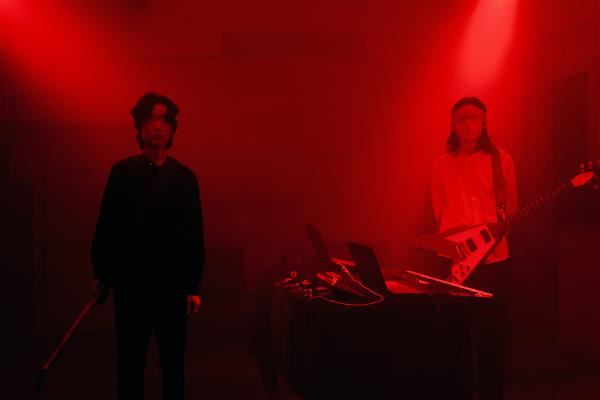
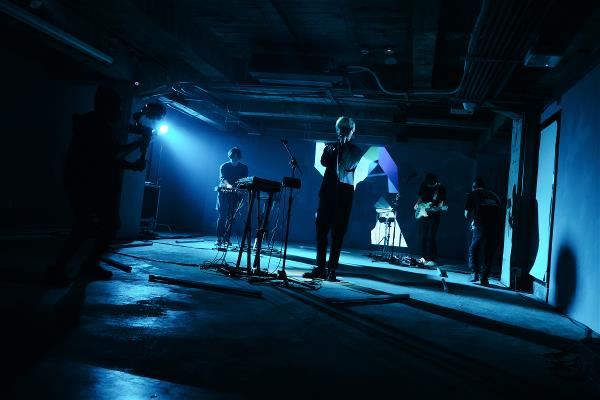
A Taiwanese-speaking rock band
Among the performers featured in this year’s Taiwan Beats Showcase, Sorry Youth has the most experience with overseas concerts, having performed at music festivals in Japan, Korea, and Hong Kong, and most recently at TAIWANfest in Canada. Their albums have also been released in Japan and Korea.
This Taiwanese-language rock trio, comprising guitarist Weni, bassist Giang Giang, and drummer Chung-han, has been together for over ten years and has released three albums, of which the latest, Bad Times, Good Times, set an all-time record for funds raised for an album by a Taiwanese band. From songwriting to album cover design, everything they do evokes powerful Taiwanese maritime elements and concern for local issues. Their spirit of perseverance in doing creative work while at university and after embarking on their careers, as well as their spirit of brotherhood, have become part of the band’s intangible identity.
The two songs the trio performs for the 2022 SXSW are “Pilgrimage” and “Love Our Differences.” As the background to the first song, because the band members are all from Central and Southern Taiwan, they all have memories dating back to childhood of the Mazu pilgrimages held in those regions. Moreover, Giang Giang has taken part in the Dajia Mazu Pilgrimage since reaching adulthood. While doing so, he noticed that the music broadcast during the procession had electronic elements, heavy rhythms, and clear melodies, and this inspired them to work creatively in the same direction.
“Love Our Differences,” on the other hand, is the theme song for the documentary film series The Weirdo in Taiwan. The focus of these documentaries is on individuals who are active in diverse issue areas, including animal protection, same-sex marriage, migrant workers, and education. The films tell the stories of minorities in society. Hearing producer Yang Li-chou vividly recount the experiences of these people made a deep impression on Sorry Youth, which they transformed into creative inspiration.
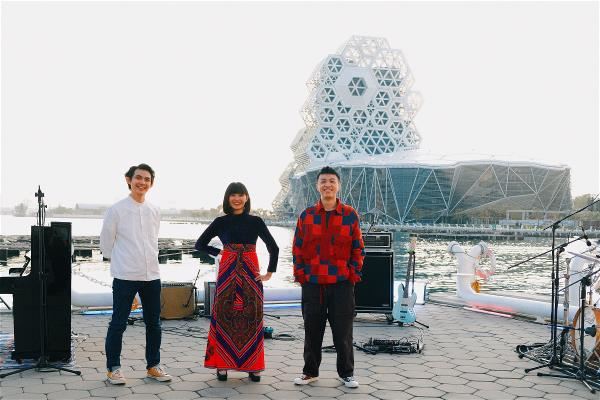
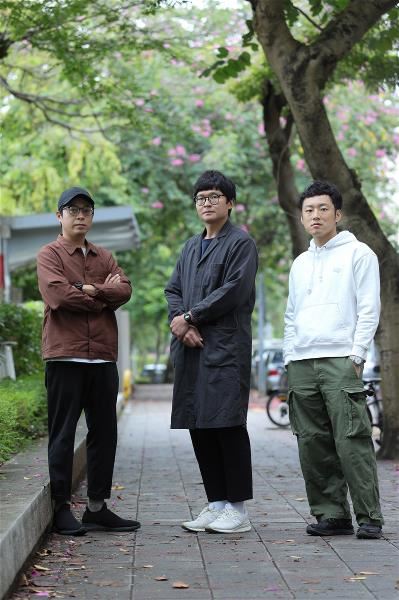
Seeing Taiwan’s uniqueness
Sorry Youth has been showing concern for social issues in Taiwan ever since their first album, Seafood.
In 2019 Sorry Youth contacted the organizers of TAIWANfest in Canada on their own initiative in hopes of performing there. When the band arrived at the festival site, they had the chance to chat with the event’s founders. They turned out to be a group of expatriate intellectuals who back in the day could not return to Taiwan for political reasons, and who decided to hold the festival in culturally diverse Canada to draw public attention to Taiwan’s current democratic values. After returning to Taiwan, Sorry Youth wrote the song “Justice in Time” to celebrate these people who fought for freedom.
Love for Taiwan transcends national boundaries. Through a Japanese music company, Sorry Youth’s album Seafood was sold in some bars in Japan along with a beer made by Taihu Brewing with a very similar Chinese name to the album’s (the beer is called “Hai Pilsner” in English). When bars held “Taiwan Night” events, Sorry Youth would produce customized playlists for them to use. Among the venues where their albums are sold in Japan, the most noteworthy is an eatery named Funfun Luroufan. Although the boss is Japanese, he loves Taiwanese culture, and the place is decorated with Taiwanese-style decorative metal window lattices and printed fabrics, and sells braised pork over rice, Taiwanese beer, and albums by Sorry Youth. “The boss has even recently started to learn Chinese!” says Weni with a smile.
Sorry Youth are attached to their homeland, but they also have an international perspective. Their most recent album, Bad Times, Good Times, has been considered their most impeccable work. This is not only because the singing of the Taiwanese-language lyrics is even more authentic, but also because the album reflects the affection they have built up over time for locations all over Taiwan.
Sorry Youth has played at the Small Oyster Rock music festival in Kaohsiung for three years running, and they have gotten to know local fishermen. They have built up friendships with these people while drinking together and have found this to be a source of creative inspiration. After performing at the Fuli Harvest Music Festival in Hualien, they were invited by some local young people to try their home-brewed rice wine and listen to some local stories. The band members say with a smile: “This is how we connect with local communities.”
Do you want to hear more music by Sorry Youth and other Taiwanese artists? Then hurry over to YouTube and search for “Taiwan Beats Showcase,” and you can check out their outstanding performances for the SXSW Music Festival.
The 2022 South by Southwest (SXSW) Conference and Festivals was a hybrid event with both online and in-person components. It included activities in three major fields—film, music, and interactive multimedia—to enable creators to display their works and interact with others. This global arts event is held in Austin, Texas and has been going for 35 years. Each year it selects artists to participate from among a huge number of submitted works.
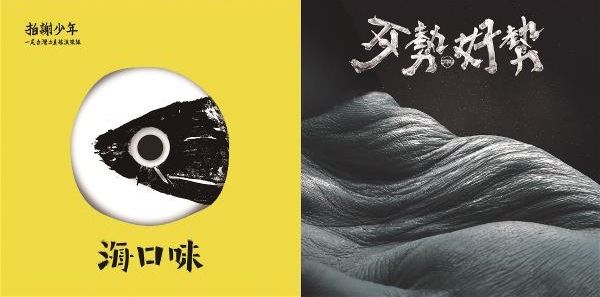
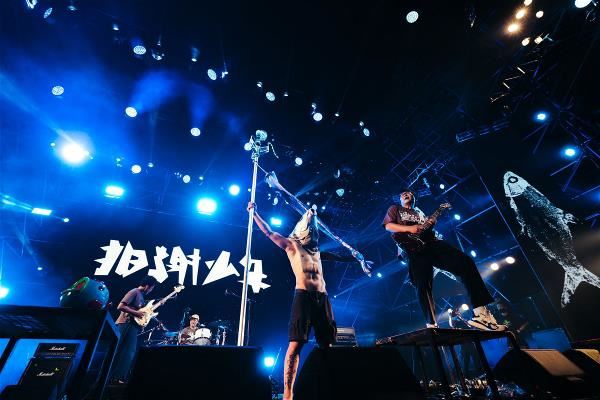
Article and photos courtesy of Taiwan Panorama May 2022





